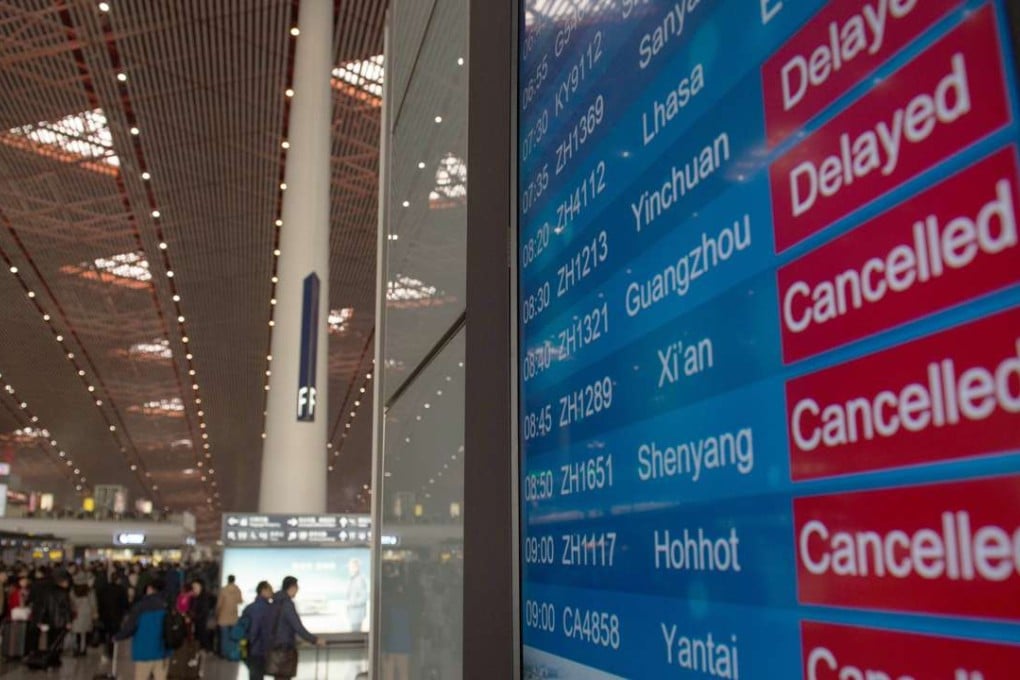Hundreds of flights cancelled in Beijing as thick smog lays siege to capital
Travel between the capital and Hong Kong disrupted as air pollution cuts visibility to less than 200 metres

Persistent heavy smog on Tuesday caused massive flight delays in and around Beijing, snarling traffic and even pushing up vegetable prices in the capital.
By 6pm, 359 flights at Beijing Capital International Airport had been cancelled, according to an airport statement.
The Hong Kong Airport Authority said 16 flights to Beijing were delayed, while one Beijing-Hong Kong flight was cancelled and 12 others delayed. Flights to Tianjin were also affected. Three departing and three arriving flights were cancelled.
At least 23 cities in the north had issued red alerts for air pollution, and smog covered a seventh of the country, China News Service reported.
In smog-bound Tianjin, 243 flights were cancelled and 63 delayed by 5pm. Massive delays were also reported in Jinan and Qingdao in Shandong province.